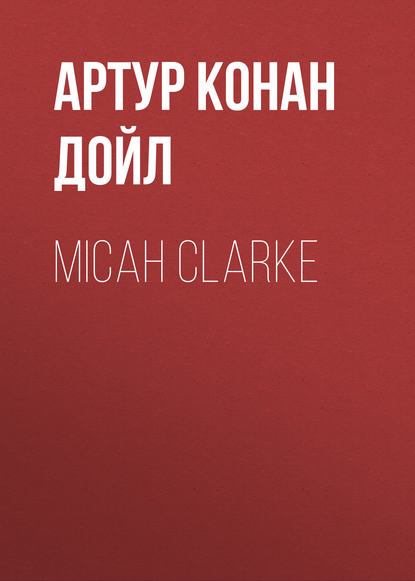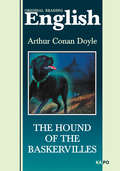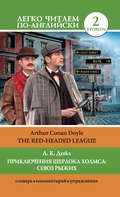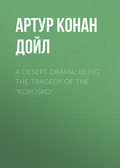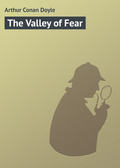Chapter I. Of Cornet Joseph Clarke of the Ironsides
It may be, my dear grandchildren, that at one time or another I have told you nearly all the incidents which have occurred during my adventurous life. To your father and to your mother, at least, I know that none of them are unfamiliar. Yet when I consider that time wears on, and that a grey head is apt to contain a failing memory, I am prompted to use these long winter evenings in putting it all before you from the beginning, that you may have it as one clear story in your minds, and pass it on as such to those who come after you. For now that the house of Brunswick is firmly established upon the throne and that peace prevails in the land, it will become less easy for you every year to understand how men felt when Englishmen were in arms against Englishmen, and when he who should have been the shield and the protector of his subjects had no thought but to force upon them what they most abhorred and detested.
My story is one which you may well treasure up in your memories, and tell again to others, for it is not likely that in this whole county of Hampshire, or even perhaps in all England, there is another left alive who is so well able to speak from his own knowledge of these events, or who has played a more forward part in them. All that I know I shall endeavour soberly and in due order to put before you. I shall try to make these dead men quicken into life for your behoof, and to call back out of the mists of the past those scenes which were brisk enough in the acting, though they read so dully and so heavily in the pages of the worthy men who have set themselves to record them. Perchance my words, too, might, in the ears of strangers, seem to be but an old man’s gossip. To you, however, who know that these eyes which are looking at you looked also at the things which I describe, and that this hand has struck in for a good cause, it will, I know, be different. Bear in mind as you listen that it was your quarrel as well as our own in which we fought, and that if now you grow up to be free men in a free land, privileged to think or to pray as your consciences shall direct, you may thank God that you are reaping the harvest which your fathers sowed in blood and suffering when the Stuarts were on the throne.
I was born then in the year 1664, at Havant, which is a flourishing village a few miles from Portsmouth off the main London road, and there it was that I spent the greater part of my youth. It is now as it was then, a pleasant, healthy spot, with a hundred or more brick cottages scattered along in a single irregular street, each with its little garden in front, and maybe a fruit tree or two at the back. In the middle of the village stood the old church with the square tower, and the great sun-dial like a wrinkle upon its grey weather-blotched face. On the outskirts the Presbyterians had their chapel; but when the Act of Uniformity was passed, their good minister, Master Breckinridge, whose discourses had often crowded his rude benches while the comfortable pews of the church were empty, was cast into gaol, and his flock dispersed. As to the Independents, of whom my father was one, they also were under the ban of the law, but they attended conventicle at Emsworth, whither we would trudge, rain or shine, on every Sabbath morning. These meetings were broken up more than once, but the congregation was composed of such harmless folk, so well beloved and respected by their neighbours, that the peace officers came after a time to ignore them, and to let them worship in their own fashion. There were Papists, too, amongst us, who were compelled to go as far as Portsmouth for their Mass. Thus, you see, small as was our village, we were a fair miniature of the whole country, for we had our sects and our factions, which were all the more bitter for being confined in so narrow a compass.
My father, Joseph Clarke, was better known over the countryside by the name of Ironside Joe, for he had served in his youth in the Yaxley troop of Oliver Cromwell’s famous regiment of horse, and had preached so lustily and fought so stoutly that old Noll himself called him out of the ranks after the fight at Dunbar, and raised him to a cornetcy. It chanced, however, that having some little time later fallen into an argument with one of his troopers concerning the mystery of the Trinity, the man, who was a half-crazy zealot, smote my father across the face, a favour which he returned by a thrust from his broadsword, which sent his adversary to test in person the truth of his beliefs. In most armies it would have been conceded that my father was within his rights in punishing promptly so rank an act of mutiny, but the soldiers of Cromwell had so high a notion of their own importance and privileges, that they resented this summary justice upon their companion. A court-martial sat upon my father, and it is likely that he would have been offered up as a sacrifice to appease the angry soldiery, had not the Lord Protector interfered, and limited the punishment to dismissal from the army. Cornet Clarke was accordingly stripped of his buff coat and steel cap, and wandered down to Havant, where he settled into business as a leather merchant and tanner, thereby depriving Parliament of as trusty a soldier as ever drew blade in its service. Finding that he prospered in trade, he took as wife Mary Shepstone, a young Churchwoman, and I, Micah Clarke, was the first pledge of their union.
My father, as I remember him first, was tall and straight, with a great spread of shoulder and a mighty chest. His face was craggy and stern, with large harsh features, shaggy over-hanging brows, high-bridged fleshy nose, and a full-lipped mouth which tightened and set when he was angry. His grey eyes were piercing and soldier-like, yet I have seen them lighten up into a kindly and merry twinkle. His voice was the most tremendous and awe-inspiring that I have ever listened to. I can well believe what I have heard, that when he chanted the Hundredth Psalm as he rode down among the blue bonnets at Dunbar, the sound of him rose above the blare of trumpets and the crash of guns, like the deep roll of a breaking wave. Yet though he possessed every quality which was needed to raise him to distinction as an officer, he had thrown off his military habits when he returned to civil life. As he prospered and grew rich he might well have worn a sword, but instead he would ever bear a small copy of the Scriptures bound to his girdle, where other men hung their weapons. He was sober and measured in his speech, and it was seldom, even in the bosom of his own family, that he would speak of the scenes which he had taken part in, or of the great men, Fleetwood and Harrison, Blake and Ireton, Desborough and Lambert, some of whom had been simple troopers like himself when the troubles broke out. He was frugal in his eating, backward in drinking, and allowed himself no pleasures save three pipes a day of Oronooko tobacco, which he kept ever in a brown jar by the great wooden chair on the left-hand side of the mantelshelf.
Yet for all his self-restraint the old leaven would at times begin to work in him, and bring on fits of what his enemies would call fanaticism and his friends piety, though it must be confessed that this piety was prone to take a fierce and fiery shape. As I look back, one or two instances of that stand out so hard and clear in my recollection that they might be scenes which I had seen of late in the playhouse, instead of memories of my childhood more than threescore years ago, when the second Charles was on the throne.
The first of these occurred when I was so young that I can remember neither what went before nor what immediately after it. It stuck in my infant mind when other things slipped through it. We were all in the house one sultry summer evening, when there came a rattle of kettledrums and a clatter of hoofs, which brought my mother and my father to the door, she with me in her arms that I might have the better view. It was a regiment of horse on their way from Chichester to Portsmouth, with colours flying and band playing, making the bravest show that ever my youthful eyes had rested upon. With what wonder and admiration did I gaze at the sleek prancing steeds, the steel morions, the plumed hats of the officers, the scarfs and bandoliers. Never, I thought, had such a gallant company assembled, and I clapped my hands and cried out in my delight. My father smiled gravely, and took me from my mother’s arms. ‘Nay, lad,’ he said, ‘thou art a soldier’s son, and should have more judgment than to commend such a rabble as this. Canst thou not, child as thou art, see that their arms are ill-found, their stirrup-irons rusted, and their ranks without order or cohesion? Neither have they thrown out a troop in advance, as should even in times of peace be done, and their rear is straggling from here to Bedhampton. Yea,’ he continued, suddenly shaking his long arm at the troopers, and calling out to them, ‘ye are corn ripe for the sickle and waiting only for the reapers!’ Several of them reined up at this sudden out-flame. ‘Hit the crop-eared rascal over the pate, Jack!’ cried one to another, wheeling his horse round; but there was that in my father’s face which caused him to fall back into the ranks again with his purpose unfulfilled. The regiment jingled on down the road, and my mother laid her thin hands upon my father’s arm, and lulled with her pretty coaxing ways the sleeping devil which had stirred within him.
On another occasion which I can remember, about my seventh or eighth year, his wrath burst out with more dangerous effect. I was playing about him as he worked in the tanning-yard one spring afternoon, when in through the open doorway strutted two stately gentlemen, with gold facings to their coats and smart cockades at the side of their three-cornered hats. They were, as I afterwards understood, officers of the fleet who were passing through Havant, and seeing us at work in the yard, designed to ask us some question as to their route. The younger of the pair accosted my father and began his speech by a great clatter of words which were all High Dutch to me, though I now see that they were a string of such oaths as are common in the mouth of a sailor; though why the very men who are in most danger of appearing before the Almighty should go out of their way to insult Him, hath ever been a mystery to me. My father in a rough stern voice bade him speak with more reverence of sacred things, on which the pair of them gave tongue together, swearing tenfold worse than before, and calling my father a canting rogue and a smug-faced Presbytery Jack. What more they might have said I know not, for my father picked up the great roller wherewith he smoothed the leather, and dashing at them he brought it down on the side of one of their heads with such a swashing blow, that had it not been for his stiff hat the man would never have uttered oath again. As it was, he dropped like a log upon the stones of the yard, while his companion whipped out his rapier and made a vicious thrust; but my father, who was as active as he was strong, sprung aside, and bringing his cudgel down upon the outstretched arm of the officer, cracked it like the stem of a tobacco-pipe. This affair made no little stir, for it occurred at the time when those arch-liars, Oates, Bedloe, and Carstairs, were disturbing the public mind by their rumours of plots, and a rising of some sort was expected throughout the country. Within a few days all Hampshire was ringing with an account of the malcontent tanner of Havant, who had broken the head and the arm of two of his Majesty’s servants. An inquiry showed, however, that there was no treasonable meaning in the matter, and the officers having confessed that the first words came from them, the Justices contented themselves with imposing a fine upon my father, and binding him over to keep the peace for a period of six months.
I tell you these incidents that you may have an idea of the fierce and earnest religion which filled not only your own ancestor, but most of those men who were trained in the parliamentary armies. In many ways they were more like those fanatic Saracens, who believe in conversion by the sword, than the followers of a Christian creed. Yet they have this great merit, that their own lives were for the most part clean and commendable, for they rigidly adhered themselves to those laws which they would gladly have forced at the sword’s point upon others. It is true that among so many there were some whose piety was a shell for their ambition, and others who practised in secret what they denounced in public, but no cause however good is free from such hypocritical parasites. That the greater part of the saints, as they termed themselves, were men of sober and God-fearing lives, may be shown by the fact that, after the disbanding of the army of the Commonwealth, the old soldiers flocked into trade throughout the country, and made their mark wherever they went by their industry and worth. There is many a wealthy business house now in England which can trace its rise to the thrift and honesty of some simple pikeman of Ireton or Cromwell.
But that I may help you to understand the character of your great-grandfather, I shall give an incident which shows how fervent and real were the emotions which prompted the violent moods which I have described. I was about twelve at the time, my brothers Hosea and Ephraim were respectively nine and seven, while little Ruth could scarce have been more than four. It chanced that a few days before a wandering preacher of the Independents had put up at our house, and his religious ministrations had left my father moody and excitable. One night I had gone to bed as usual, and was sound asleep with my two brothers beside me, when we were roused and ordered to come downstairs. Huddling on our clothes we followed him into the kitchen, where my mother was sitting pale and scared with Ruth upon her knee.
‘Gather round me, my children,’ he said, in a deep reverent voice, ‘that we may all appear before the throne together. The kingdom of the Lord is at hand-oh, be ye ready to receive Him! This very night, my loved ones, ye shall see Him in His splendour, with the angels and the archangels in their might and their glory. At the third hour shall He come-that very third hour which is now drawing upon us.’
‘Dear Joe,’ said my mother, in soothing tones, ‘thou art scaring thyself and the children to no avail. If the Son of Man be indeed coming, what matters it whether we be abed or afoot?’
‘Peace, woman,’ he answered sternly; ‘has He not said that He will come like a thief in the night, and that it is for us to await Him? Join with me, then, in prayerful outpourings that we may be found as those in bridal array. Let us offer up thanks that He has graciously vouchsafed to warn us through the words of His servant. Oh, great Lord, look down upon this small flock and lead it to the sheep fold! Mix not the little wheat with the great world of chaff. Oh, merciful Father! look graciously upon my wife, and forgive her the sin of Erastianism, she being but a woman and little fitted to cast off the bonds of antichrist wherein she was born. And these too, my little ones, Micah and Hosea, Ephraim and Ruth, all named after Thy faithful servants of old, oh let them stand upon Thy right hand this night!’ Thus he prayed on in a wild rush of burning, pleading words, writhing prostrate upon the floor in the vehemence of his supplication, while we, poor trembling mites, huddled round our mother’s skirts and gazed with terror at the contorted figure seen by the dim light of the simple oil lamp. On a sudden the clang of the new church clock told that the hour had come. My father sprang from the floor, and rushing to the casement, stared up with wild expectant eyes at the starry heavens. Whether he conjured up some vision in his excited brain, or whether the rush of feeling on finding that his expectations were in vain, was too much for him, it is certain that he threw his long arms upwards, uttered a hoarse scream, and tumbled backwards with foaming lips and twitching limbs upon the ground. For an hour or more my poor mother and I did what we could to soothe him, while the children whimpered in a corner, until at last he staggered slowly to his feet, and in brief broken words ordered us to our rooms. From that time I have never heard him allude to the matter, nor did he ever give us any reason why he should so confidently have expected the second coming upon that particular night. I have learned since, however, that the preacher who visited us was what was called in those days a fifth-monarchy man, and that this particular sect was very liable to these premonitions. I have no doubt that something which he had said had put the thought into my father’s head, and that the fiery nature of the man had done the rest.
So much for your great-grandfather, Ironside Joe. I have preferred to put these passages before you, for on the principle that actions speak louder than words, I find that in describing a man’s character it is better to give examples of his ways than to speak in broad and general terms. Had I said that he was fierce in ins religion and subject to strange fits of piety, the words might have made little impression upon you; but when I tell you of his attack upon the officers in the tanning-yard, and his summoning us down in the dead of the night to await the second coming, you can judge for yourselves the lengths to which his belief would carry him. For the rest, he was an excellent man of business, fair and even generous in his dealings, respected by all and loved by few, for his nature was too self-contained to admit of much affection. To us he was a stern and rigid father, punishing us heavily for whatever he regarded as amiss in our conduct. He bad a store of such proverbs as ‘Give a child its will and a whelp its fill, and neither will strive,’ or ‘Children are certain cares and uncertain comforts,’ wherewith he would temper my mother’s more kindly impulses. He could not bear that we should play trick-track upon the green, or dance with the other children upon the Saturday night.
As to my mother, dear soul, it was her calm, peaceful influence which kept my father within bounds, and softened his austere rule. Seldom indeed, even in his darkest moods, did the touch of her gentle hand and the sound of her voice fail to soothe his fiery spirit. She came of a Church stock, and held to her religion with a quiet grip which was proof against every attempt to turn her from it. I imagine that at one time her husband had argued much with her upon Arminianism and the sin of simony, but finding his exhortations useless, he had abandoned the subject save on very rare occasions. In spite of her Episcopacy, however, she remained a staunch Whig, and never allowed her loyalty to the throne to cloud her judgment as to the doings of the monarch who sat upon it.
Women were good housekeepers fitly years ago, but she was conspicuous among the best. To see her spotless cuffs and snowy kirtle one would scarce credit how hard she laboured. It was only the well ordered house and the dustless rooms which proclaimed her constant industry. She made salves and eyewaters, powders and confects, cordials and persico, orangeflower water and cherry brandy, each in its due season, and all of the best. She was wise, too, in herbs and simples. The villagers and the farm labourers would rather any day have her advice upon their ailments than that of Dr. Jackson of Purbrook, who never mixed a draught under a silver crown. Over the whole countryside there was no woman more deservedly respected and more esteemed both by those above her and by those beneath.
Such were my parents as I remember them in my childhood. As to myself, I shall let my story explain the growth of my own nature. My brothers and my sister were all brownfaced, sturdy little country children, with no very marked traits save a love of mischief controlled by the fear of their father. These, with Martha the serving-maid, formed our whole household during those boyish years when the pliant soul of the child is hardening into the settled character of the man. How these influences affected me I shall leave for a future sitting, and if I weary you by recording them, you must remember that I am telling these things rather for your profit than for your amusement; that it may assist you in your journey through life to know how another has picked out the path before you.




